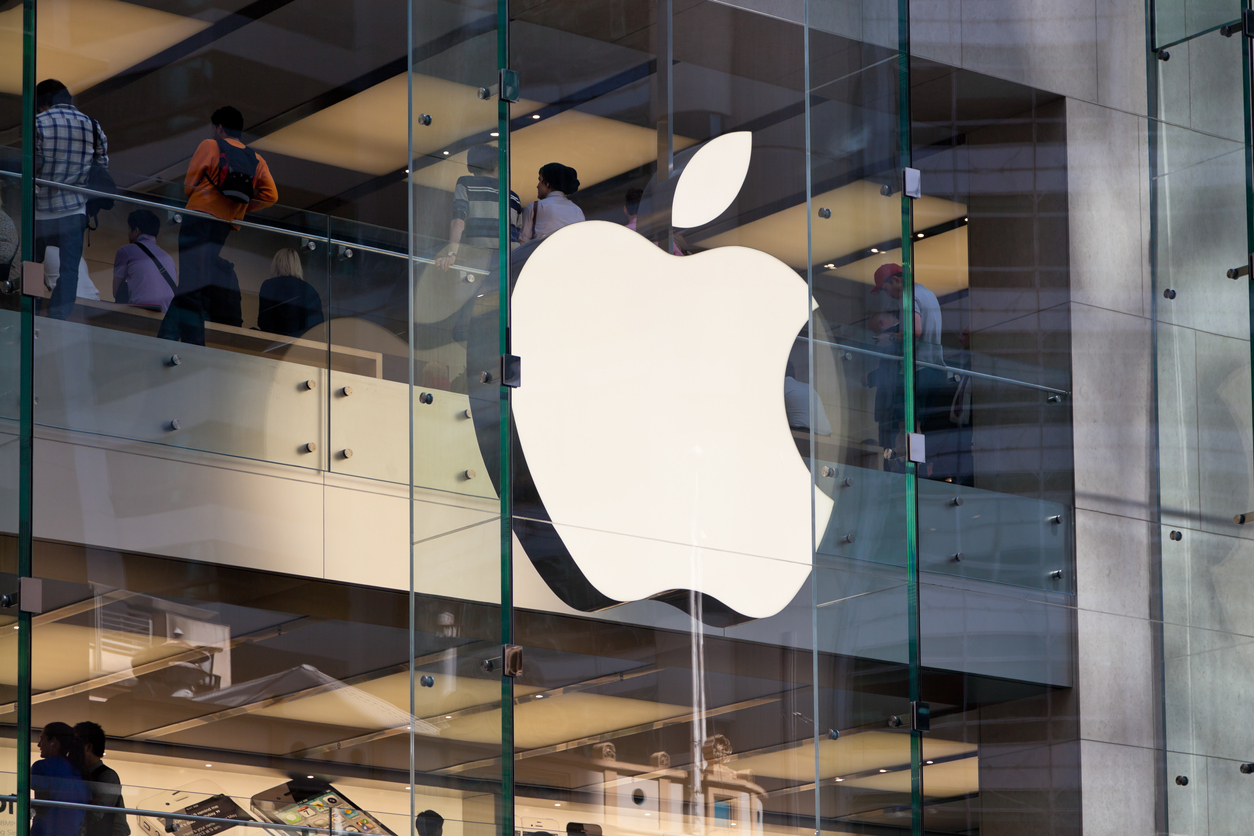Apple and Goldman Sachs Hit with $89 Million Fine Over Apple Card Mismanagement: A Costly Lesson in Tech-Finance Collaboration
In a landmark decision, the Consumer Financial Protection Bureau (CFPB) has ordered Apple Inc. and Goldman Sachs to pay over $89 million in penalties and compensation, holding them accountable for what it described as serious mishandling of Apple Card-related consumer disputes. This case highlights the crucial importance of regulatory compliance, transparency, and effective collaboration as tech giants step further into financial services. With the CFPB’s action, both companies are faced with operational changes and a significant reputational hit in the growing world of tech-finance ventures.
Consumer Complaints Ignored: What the CFPB Discovered
The CFPB’s investigation revealed that Apple and Goldman Sachs failed in their management of consumer complaints regarding the Apple Card, particularly concerning the handling of disputes. Apple, according to the CFPB, neglected to forward tens of thousands of consumer complaints to Goldman Sachs, the bank responsible for investigating and resolving these disputes. This omission left many consumers without proper recourse for grievances, which ranged from unexpected charges to perceived violations of interest-free payment agreements.
When Goldman Sachs did receive these complaints, the bank reportedly failed to meet federal regulatory requirements in its investigations. According to the CFPB, these lapses included failing to complete timely investigations, insufficiently notifying consumers of investigation results, and improperly managing credit report inaccuracies. These failures in handling dispute resolution violated federal consumer protection standards, prompting the CFPB to intervene with stringent penalties and restrictions on future credit offerings.
CFPB Director Rohit Chopra voiced strong disapproval of both companies’ actions, stating, “Apple and Goldman Sachs illegally sidestepped their legal obligations for Apple Card borrowers. Big Tech companies and major Wall Street firms should not act as if they are above federal law.” The CFPB’s statement emphasizes the importance of regulatory compliance, especially in joint ventures where tech companies expand into heavily regulated sectors like finance.
Financial Penalties and Operating Restrictions
To address these alleged violations, the CFPB imposed a steep financial penalty on both Apple and Goldman Sachs. Goldman Sachs faces $45 million in civil penalties and an additional $19.8 million to be paid as consumer restitution. Meanwhile, Apple has been fined $25 million. These penalties represent one of the largest financial reprimands for a tech-finance partnership, sending a clear message about the cost of non-compliance.
In addition to these financial penalties, the CFPB imposed a restriction on Goldman Sachs, temporarily barring it from issuing any new credit cards until it demonstrates that it has remedied its compliance issues. This move directly impacts Goldman Sachs’ business strategy, as the Apple Card partnership had positioned the bank as a significant player in the consumer credit market. The restriction will also likely affect other planned credit ventures and emphasizes the consequences of regulatory non-adherence for companies at the intersection of tech and finance.
The Apple Card: Ambitious Launch, Complex Challenges
Launched in 2019, the Apple Card marked Apple’s first venture into financial products, positioning itself as an alternative to traditional credit cards with a user-friendly, digitally native approach. The card, issued by Goldman Sachs, was promoted as a simple, transparent credit solution for Apple users, with rewards, no fees, and easy integration into Apple Pay. This innovative approach gained early popularity, especially among Apple loyalists, and added a competitive edge to Apple’s ecosystem.
A key selling point of the Apple Card was its interest-free financing option for Apple products, which many consumers embraced to finance purchases of devices such as iPhones, iPads, and MacBooks. However, the CFPB discovered that both Apple and Goldman Sachs failed to effectively communicate the terms of these financing options. Many consumers were unaware that the interest-free financing feature wasn’t automatically applied to all purchases, resulting in unexpected interest charges on their statements. The lack of clear communication led to frustration, financial strain, and, for some, inaccuracies in credit reporting that adversely affected their credit scores.
The CFPB found that Goldman Sachs did not sufficiently explain the refund process to consumers or make the refunding process user-friendly, further exacerbating the situation. This lack of transparency and inadequate customer support ultimately led to additional interest charges for affected consumers, creating financial confusion and dissatisfaction among Apple Card users.
Public Reactions and Statements from Apple and Goldman Sachs
In the wake of the CFPB’s ruling, both Apple and Goldman Sachs have sought to address the fallout. Nick Carcaterra, vice president of corporate communications at Goldman Sachs, defended the bank’s intentions while acknowledging the technological and operational challenges faced after the Apple Card’s launch. “Apple Card is one of the most consumer-friendly credit cards that has ever been offered,” Carcaterra remarked. “We worked diligently to address certain technological and operational challenges that we experienced after launch and have already handled them with impacted customers. We are pleased to have reached a resolution with the CFPB and are proud to have developed such an innovative and award-winning product alongside Apple.”
Apple, meanwhile, expressed its continued commitment to Apple Card customers, yet it disputed certain aspects of the CFPB’s findings. “While we strongly disagree with the CFPB’s characterization of Apple’s conduct, we have aligned with them on an agreement,” an Apple spokesperson stated. “We look forward to continuing to deliver a great experience for our Apple Card customers.” Both statements highlight a dual stance of cooperation with regulators while defending their commitment to innovation and customer satisfaction.
Related: Apple’s Ongoing Struggles with European Regulations
Implications for Tech Companies Entering Financial Services
The penalties and restrictions imposed on Apple and Goldman Sachs have broader implications for tech companies venturing into the financial sector. This case demonstrates that tech giants entering finance cannot afford to overlook compliance requirements, as financial services are subject to stringent federal regulations to protect consumers. With Apple and Goldman Sachs each carrying their own expertise—tech innovation for Apple and financial know-how for Goldman Sachs—this case has exposed the potential pitfalls when two industries with vastly different regulatory standards intersect.
The CFPB’s actions underscore the heightened scrutiny that tech-finance partnerships may face as they strive to bring new products to market. The bureau’s mandate to prioritize compliance and transparency serves as a stark warning to other tech companies eyeing the financial services sector, emphasizing the need for robust operational frameworks and meticulous consumer protection measures.
Related: Apple breaching EU tech rules
Looking Ahead: Regulatory Oversight in Tech-Finance Ventures
As the case unfolds, it will likely set a regulatory precedent for other tech and finance collaborations. The CFPB’s message is clear: regardless of a company’s innovative potential or brand reputation, consumer protection and regulatory adherence are non-negotiable. This case signals an increased willingness by regulators to intervene when companies fail to uphold federal standards, which could shape the strategies of other tech companies looking to expand into financial products.
For Apple and Goldman Sachs, this outcome is a critical learning opportunity that may shape future developments of the Apple Card and other joint ventures. The companies will need to reassess their compliance strategies, strengthen consumer protections, and ensure full transparency if they hope to regain public trust and maintain their market standing.
This $89 million settlement underscores the costly repercussions of regulatory non-compliance in the tech-finance sphere, especially when consumer interests are compromised. As the CFPB continues its oversight, tech companies and financial institutions alike must heed this example and adopt stricter, more transparent practices. For Apple and Goldman Sachs, the road to rebuilding consumer trust begins with demonstrating a renewed commitment to regulatory compliance and putting consumer needs front and center.














